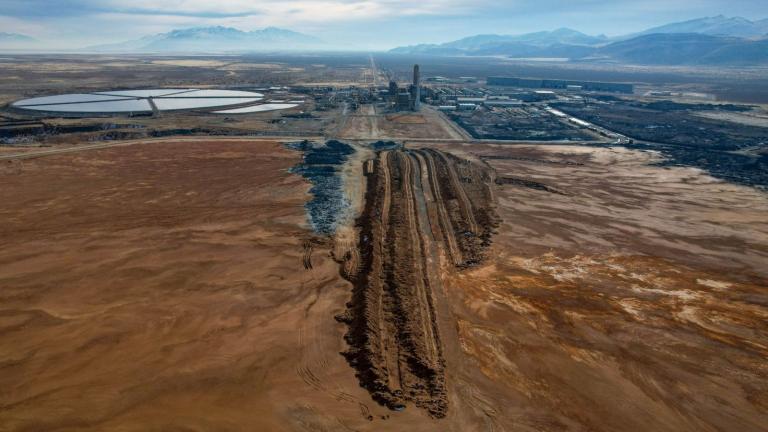
“I am here to drill up your ocean.” (Photo by Fabio DiLupo.)
Embarrassing clown show Shell Oil is floating around the Arctic Ocean off the coast of Alaska, probably in poorly patched inner tubes while wearing those beer-can-straw hats. If you don’t remember the full history of the company’s sheer ineptitude in the area, it’s here. It is perfectly fair to assume that it hired a bunch of interns, bought three rowboats and an augur, and gave Arctic drilling a shot.
Anyway, yesterday the company was granted yet another permit to poke around on the floor of the ocean near Alaska. Like a kid who’s just coming off being grounded, it’s on a short leash — only allowed to drill into shallow areas and to work on a system to bury the blowout preventer beneath the ocean floor. Shell probably tried to talk back and got yelled at. It tried to get another permit, but that one was rejected because it can’t properly operate the containment dome that is supposed to be used in the event of a spill. I think, anyway. I mean, I literally can’t even keep track any more. This has been months of trying to track the bajillion errors and complaints and excuses Shell is laying out.
I also love that the argument in response to this from people like Sarah Palin would likely be, “There’s too much regulation!” instead of “Thank fucking God that we have processes in place that keep companies with all of the dexterity of Cosmo Kramer from driving up to Alaska and creating conduits between pools of oil and polar bears’ faces.” More regulation on this shit, please.
But none of that is the point of this post. The point of this post is that Shell has finally figured out who to blame for the fact that it’s terrible at the only thing it’s supposed to be good at. Who’s at fault? Greenpeace.
From the AP:
Royal Dutch Shell PLC is taking Greenpeace International to court in an attempt to have the environmental organization banned from holding any protest within 500 meters (1,640 feet) of any Shell property, or face a €1 million ($1.3 million) fine. …
Shell asked for the ban to go into effect immediately and last six months. Greenpeace spokesman Aaron Gray-Block said the case is limited in theory to the Netherlands, but Shell is also demanding Greenpeace International not support or be involved in actions in other countries. …
Greenpeace activists have been involved in two attempts to thwart Shell-owned ships from traveling to the Arctic. In May, a U.S. court ordered the organization to remain at least a kilometer (around half a mile) away from any of Shell’s ships bound for Alaska, within 200 miles of shore in U.S. waters.
Given the actual reasons that Shell isn’t drilling right this very minute, filing a lawsuit against Greenpeace is like the 10-year-old kid who says that he can’t make a basket when you’re watching and so you turn your back and CLANK CLANK CLANK.
The article itself points out that Greenpeace has had nothing to do with Shell’s delays in the Arctic:
Drilling in the Chukchi was delayed, first due to a dangerously large ice floe drifting toward its platform, and then after a transportable dome the company plans to use to help contain any potential spill failed during a test overseen by the U.S. Coast Guard.
I wonder how the containment dome would have fared if the Coast Guard hadn’t been watching. (Spoiler: CLANK CLANK.)
Last note on this entire, sad debacle.
Shell received the second of its two final permits for exploratory drilling on Thursday from the U.S. Bureau of Safety and Environmental Enforcement, for the Beaufort project. On the same day, scientists at the National Snow and Ice Data Center announced the annual Artic summer sea-ice melt — the July-October period that is Shell’s opportunity for drilling — had reached the greatest extent on record earlier this month, possibly as a result of global warming.
Global warming is also Greenpeace’s fault and also too much regulation.




